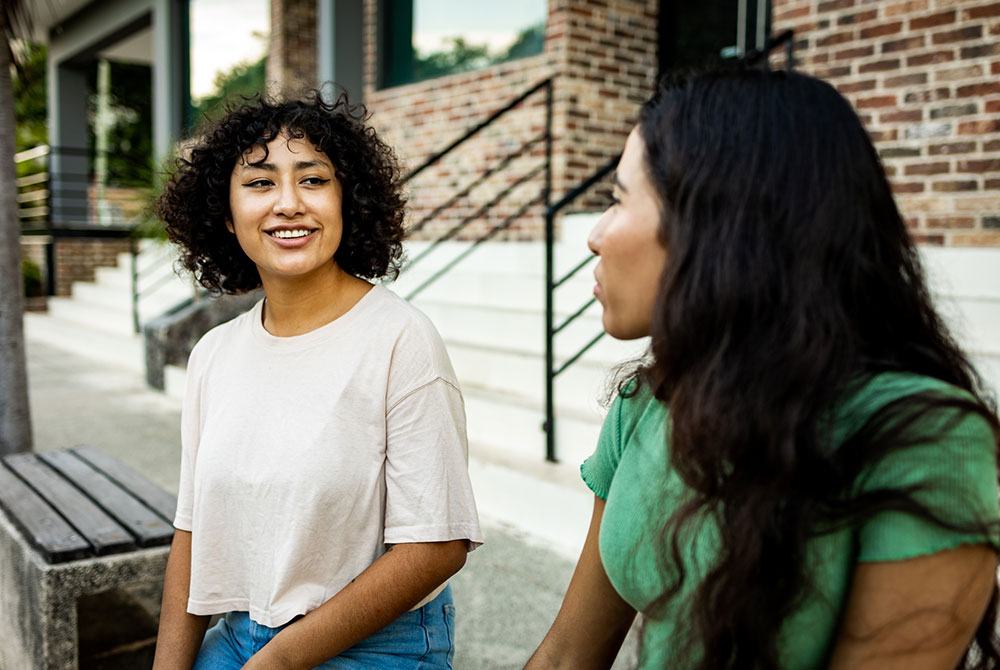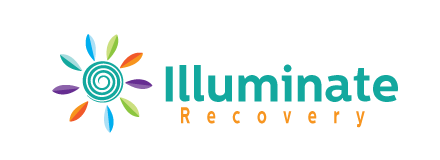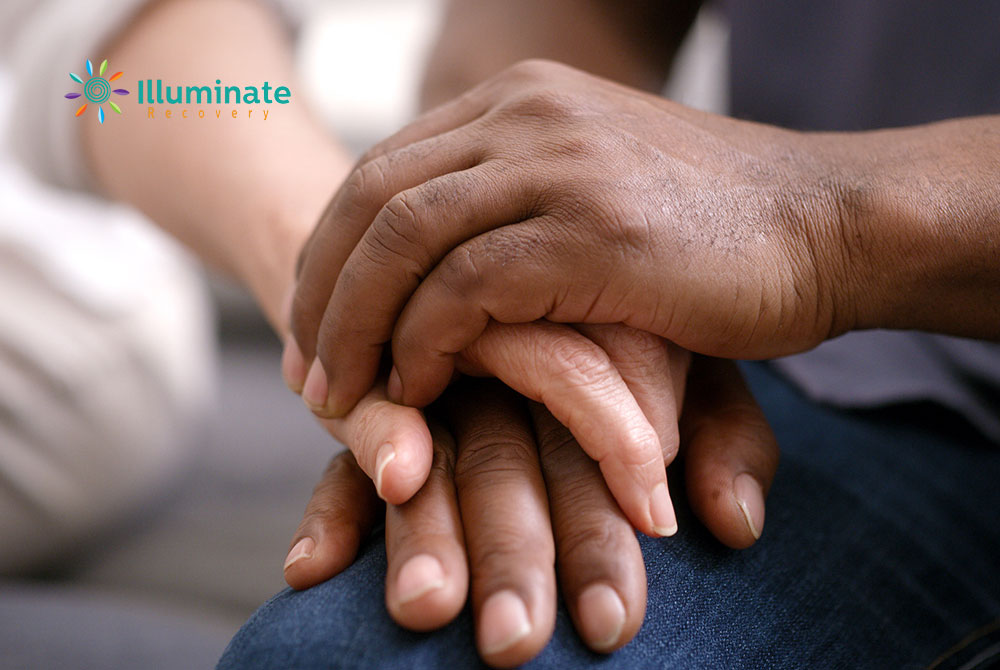Addiction, which can also be termed substance use disorder, is known as a “family disease.” That’s because it can not only negatively affect the life of a person who is struggling with substance use but may also cause emotional trauma and stress to friends, family, co-workers, neighbors, and others who associate with and care about that person. For that reason, the recovery journey encompasses not only the individual who is trying to rebuild their life. It must also explore ways that people in recovery can restore loving and mutually respectful relationships with people they care about, both during the recovery process and outside of it.
Successful recovery from substance use disorder requires intense self-reflection and continued examination of your past actions, beliefs, and relationships. For example, some of your relationships may have been based around your substance use disorder; you will therefore need to make changes to how you form new relationships based on your new life and not a harmful habit. Other relationships may have fallen by the wayside or were neglected while you were in the throes of substance use disorder. You may have found substance use took up the time you would have spent maintaining and building upon the relationship foundations you had previously laid.
Fortunately, these relationships do not need to be lost, but it will take dedication and the acknowledgment of some hard truths to demonstrate that you are ready to be a responsible, compassionate, and kind friend or family member. You’ll need to be patient with yourself and your loved ones, rebuild trust, and ultimately accept that the relationship has been damaged and needs to be repaired. Then, it’s important to ensure that you both know what to expect from the recovery process – and the relationship – moving forward.
Learn more about how you can rebuild your relationships that have been damaged by addiction.
How To Rebuild Relationships in Recovery

Rebuilding relationships in recovery takes time and honest acknowledgment of the damage addiction has caused. For that reason, the first step to repairing a relationship that has been shattered by substance use disorder is to speak to the person or people affected and let them know you take responsibility for the emotional heartache and mental trauma they have experienced because of your actions. Let’s delve into the ways in which people we love are emotionally impacted by substance use disorder and why it’s crucial to acknowledge the role we played in causing them pain and emotional distress.
First, Acknowledge the Damage Caused by Addiction
Substance use disorder leads to isolation. It compels you to keep to yourself and ignore the healthy people in your life, forsaking their affection and concern for people who instead support and enable your destructive behavior. Recovery support groups are a wonderful resource because they help to build community and acceptance of our own humanity and imperfections. But it’s equally important to rebuild relationships with people who were neglected and those whose trust was eroded by irresponsible and unkind behavior. Recovering means asking for forgiveness as well as forgiving yourself so you can move forward.
Any relationship you damaged needs care and attention; once it receives that from you, you will steadily decrease the risk of falling prey to resentment and isolation, which can be a devastating combination for a person recovering from substance use disorder. Though it’s not easy, facing up to your past behavior and the ways it impacted your family, friends, co-workers, neighbors, and anyone else in your circle is part of the healing process and will ultimately make you stronger.
Sometimes, relationship rebuilding takes longer than you would like. It is important to remember what you are in control of, which includes only how you respond to others and not how they perceive you. As long as you stay steady on the road to recovery and remain honest and open about the issues your addiction caused, you will leave the door open to connect with others when they are ready.
Next, Set Goals
Goal setting is something everyone does at various points in life. Goals point us in the direction we want to go in decision-making, behavior change, and choosing positive new paths. For someone in recovery, it is essential to create recovery goals that will reinforce a fresh new mindset when approaching the challenges–both positive and negative–in everyday life.
Recovery goals can improve self-esteem, boost your future outlook, and provide a sense of purpose for your future. It’s important, however, to make sure they are manageable, measurable and specific. As you write these goals down, give specific locations, times, and logistics. For instance, making a goal to attend a certain number of meetings each day or each week at a particular location is an effective goal, as long as it is attainable for you according to your schedule, and your physical health and is relevant to your big picture. What you should avoid is setting the bar too high, especially if you are newly sober, as you want to set yourself up for success in ways that allow you to achieve new things and celebrate your accomplishments.
Once you’ve set goals for yourself, assess whether rebuilding your relationship with the person in question will help or hinder your achievement of that goal.
Learn Communication Skills

Communication is a crucial part of any relationship and can take many forms, even among healthy people. During times of active substance use, communication often breaks down, leading to arguments, dishonesty, and frustrating miscommunication. However, taking the time to redevelop effective communication skills can help rebuild relationships, including active listening, validating emotions, and holding yourself accountable.
While in the midst of active substance use, you may have become accustomed to lying, engaging in harmful behavior, using unkind language, expressing excessive complaints and criticism, and even being unfaithful to a partner or prone to violent outbursts. Many people are aware their sober selves would not behave like this and regret their actions, but they feel powerless to stop. In recovery, you must learn new skills to replace the old, negative, and hurtful behaviors that destroyed your relationships. Because these new skills are what your brain and emotions become accustomed to in recovery, this is akin to forming new habits. These are essential as you approach everyday stressful situations with a different perspective.
When your loved one expresses frustration, anger, sadness, or other emotions that in the past would have compelled you to use, practice active listening skills that show them how much you value how they feel. These skills include a calm body, eye contact, quiet responses, no judgment, and no redirection, subject changing, or interruption. Be sure to let them know you accept how they feel and that you will remain accountable for your actions moving forward.
Still, don’t forget that your needs matter too. Embracing new communication skills does not mean you should discount what you need from your relationships. Instead, become dedicated to communicating your needs when you feel it is necessary, calmly but firmly.
Patience and Consistency Are Key
Repairing relationships broken by addiction takes honesty, resilience, and time. People with substance use disorder are often accustomed to instant gratification, and that habit is reflected in both relationships and in everyday actions and beliefs. Patience and consistency can lead to healthy, rewarding relationships with family, friends, and others in your circle. Let’s explore the challenges that arise when people attempt to repair shattered friendships and connections wherein trust has been eroded, and how certain situations may trigger old habits and cause potential setbacks in your recovery.
How Does Sobriety Change Relationships?
Sobriety ultimately changes relationships for the better, but it can be a long road with many twists and turns, depending on how your substance use impacts it. Once you have begun to rebuild with your loved ones, you may feel as though you are walking on eggshells, working overtime to be accommodating, or are being observed through a magnifying glass. This is natural, and it is important to cultivate a sense of mindfulness about your behavior while normalizing your reactions and interactions as a sober friend, family member, and human.
Responding to Triggers
You will most definitely encounter situations that trigger your need to use your substance of choice. During substance use, situations that you found stressful or anxiety-inducing were avoided or shut down with substances. As a result, you are still learning new coping mechanisms that will help you face these scenarios head-on instead of escaping with substance use.
To avoid emotional, mental, or physical relapse, approach stress or conflict with the attitude of a student. You are still learning about yourself and the world, and are in the middle of a journey where unpredictable challenges and joys will arise. Be patient with yourself and others as they learn alongside you, and above all, be forgiving of your mistakes each time you pick yourself up and try again.
Moving Forward and Setting Boundaries
Throughout the recovery process, it’s essential to set boundaries and establish healthy habits. In particular, you must learn to move forward while still maintaining boundaries that support long-term recovery. Let’s dive into how setting boundaries can help rebuild relationships by establishing trust and creating emotional safety.
What Are Toxic Relationships While in Recovery?
In the throes of substance use disorder, you were probably embroiled in relationships with others whom you felt were understanding and supportive because they acted just like you. During and after recovery, it often becomes clear that these so-called friends were also involved in substance use, and no true relationship actually existed when the substance was removed from the equation. It is extremely risky to try to remain friendly with former drinking buddies or other drug users because they cannot offer the type of support a newly sober person needs.
A toxic relationship can loosely be defined as one that doesn’t support your sober journey. For example, codependent relationships or relationships that enable you to remain stagnant or dependent are inherently toxic because they will hold you back from reaching your full potential as a sober individual. You may also begin to identify toxic patterns in family, friend, or partner relationships.
Setting a boundary that you will refrain from re-establishing these toxic relationships can help you remain emotionally safe. Moving forward, it is crucial that you lean on your recovery community, your sponsor, and any others who support your new sobriety to assist you in distancing yourself and setting boundaries that will keep you on the path to success.
Can an Alcoholic Have a Healthy Relationship?
Alcoholics and other individuals with substance use disorder can certainly find and maintain healthy relationships during and after recovery. However, it’s important to do the work during the recovery process to uncover what led you to substance use, what type of people you sought out to support your addictive behavior, and how to avoid potentially toxic relationships in sobriety. Once you rebuild broken relationships and form new ones, you will see healthy patterns emerge that bring out the best in you and help you grow into the person you were always meant to be.
This process involves developing trust on both sides, which can take some time, especially for those who have been harmed by your addiction. Staying the course and doing your best to demonstrate how you can be a refuge of emotional safety can provide you with generous rewards when you reestablish your most important relationships.
What Can You Do When Your Partner Is in Recovery?
If the situations are reversed and it is your partner who is in recovery, it is still essential to practice patience while setting boundaries for yourself. First, put yourself in their shoes whenever possible. This will be key for rebuilding the relationship because if you hold onto resentment and anger, you will not be able to adequately see the progress they are making. Embrace positivity and the small victories for your partner and for your relationship, and this will help you maintain a positive outlook as you move forward, step by step, with your loved one.
Whenever possible, assist your partner in getting to meetings, communicating with their sponsor, and engaging with their recovery community. It will be difficult to watch your partner make new relationships that don’t involve you, but this is crucial for their journey and for the future of your relationship. If you begin to feel resentful, left out, or ignored, explore these feelings and look for ways you can enrich your life while your partner focuses on their sobriety. Communicate these feelings with compassion and calm so your partner understands that you are with them on their journey, but you may need support sometimes too.
Relationships Can Withstand Addiction and Recovery

Rebuilding relationships is a crucial aspect of substance use recovery, and it is not selfish to desire emotionally fulfilling connections with others as you move through your sobriety journey. Although it may seem daunting, with patience, communication, and consistency, it is possible to heal and reconnect with loved ones. Substance use disorder often causes damage to relationships by inflicting emotional, mental, and sometimes physical trauma as people with SUD engage in unhealthy and harmful behavior toward themselves and others. By acknowledging the damage caused by substance use disorder and learning communication skills, you can take the first step necessary to begin rebuilding your relationships. Boundaries and a commitment to long-term recovery will also help you rebuild relationships, embrace a mindset of self-care, and establish healthy, responsible habits for a brighter future.
If you or a loved one has been affected by substance use disorder, reach out to Illuminate Recovery for more information about how you can find the path to recovery and begin to rebuild the relationships that have suffered along the way.

Having been on both sides of active addition, both the person using, and the person affected by a loved one using drugs and alcohol, Lucas has been involved in recovery since 2009. He has been working in the treatment industry since 2013. Using his personal experience and wealth of knowledge learned from professional development and immersion in the recovery field, he has spoken with thousands of families and helped hundreds of people attain long-term sobriety. In 2020, the opportunity presented to join in and start Illuminate Recovery. Understanding the importance of personalized treatment plans and the complex nature between substance abuse and co-occurring disorders, has helped Illuminate Recovery build a strong curriculum and a phenomenal staff. Illuminate Recovery now has a medical doctor who is board certified in addiction medicine and a psychiatric medical doctor who works side by side with independently licensed therapists to provide compassionate and effective treatment.

